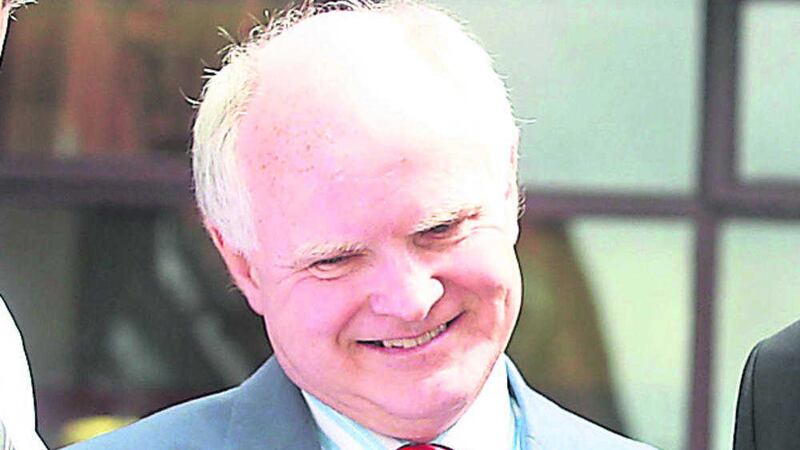AS important as EU investment in infrastructure, agriculture and social development is to Northern Ireland, more attention must be directed to the damage a Brexit would do to efforts to stimulate private sector growth and job creation.
Nowhere is this clearer than in the fledging financial services and information technology sectors.
In recent years both have been key to the creation of thousands of well-paying jobs.
It is a danger that cannot be minimised. In many cases the success of local companies on a global scale has been fuelled by their ready access to the EU.
Aidan Doherty, a senior partner with MOAT Business Consultants spanning Britain, Northern Ireland and the Republic, warns that by risking its own position as a global financial leader a Brexit “will not only undermine London but also Belfast and other regional cities like Manchester and Edinburgh that have also become key ancillary organs for the success of UK financial services”.
“Two-thirds of the 2.2 million people working in this industry work outside London”, with Belfast now playing its part.
This happens by “the provision of high value professional services, provided by companies that are not household names”.
The growth of financial services here has had a positive spin-off effect on the local economy.
That growth has included the important presence of US financial services institutions such as Citi and Allstate and the presence of global law firms such as Allen & Overy.
The creation of these local jobs supporting London’s European financial services role has also spurred investment in the education sector backed by the EU.
“The quality of our graduates,” says Doherty, “has led employers from London and elsewhere to establish high earning jobs in Belfast.”
In addition to the construction of new education facilities comes new housing and grade A office space.
As Doherty notes, “Improvements in our communication and transport links with Europe also show an ability to compete on a wider stage and grow businesses while improving our standard of living by the creation of high value jobs in legal, accounting, IT, telecommunications and support services”.
Likewise the EU’s investment in Northern Ireland since the mid-1990s in helping spur local entrepreneurship and growth in the venture capital industry through the European Investment Bank has also been crucial.
The £13 million the EIB has provided for Belfast-based Crescent Capital alone for its first two venture funds helped to leverage other investment from US pensions fund assets and other funds that has helped local IT companies to grow.
This support for Crescent between 1995 and 2005 saw the development of successful technology companies like Andor, Lagan, APT, Omiino and Mail Distiller. Thousands of jobs were created which according to Crescent CEO and founder Colin Walsh led to the creation of 1,000 “higher end paying jobs alone”.
At an average wage of £30,000 per head those wages put some £30 million into the Northern Ireland economy, generating many more jobs and purchases through the supply chains created.
“The EU by investing in Crescent,” Walsh said, “gave us the legs to kick start what proved to be world class technology companies.”
It also “helped us gain the experience to find and help build the next Andor and Lagan Technologies”.
That these two companies were based within the EU also gave two US companies - Kana Software and Proofpoint - the impetus to acquire them and them set up their own European headquarters in Northern Ireland.
Walsh points out that the EU “not only helped connect us to important sources of investment but to produce high tech growth and access to the European marketplace”.
“Without this engagement Northern Ireland would become more peripheral.”
Derry and the surrounding area face the risk of being especially hard hit by a Brexit, as Colm Cavanagh the former CEO of the NI Business Innovation Centre and a founder of the ground-breaking Derry Boston Ventures underscores.
"For Derry and Strabane," he says, “Brexit is not something that will happen somewhere far away.”
"If you stand on the front steps of Derry's Guildhall, whether you go north, west or south, the Eurozone - meaning Co Donegal - is only six miles away while Stormont is 76 miles distant and Westminster is 513 miles away.”
"Derry's future, just like the rest of Northern Ireland,” Cavanagh stresses, “lies with exports, the technology sector included".
For him the prospect of the border being reinstated is foreboding.
“I remember the days of queues of trucks at Bridgend and of border posts closed at night.”
With two-thirds of all Northern Ireland exports now going to EU countries it has a higher trade engagement with Europe than the UK itself.
Brexit would mean a substantial and uncertain redirection of the north’s trading focus to Asia and other countries outside the EU.
As some financial analysts note, a Brexit is also likely to lead to a devaluation of sterling that will make imports more expensive and exports cheaper.
Make no mistake about it: by hurting the hard-earned progress made here in financial services and information technology, a Brexit would jeopardize foreign direct investment, increase unemployment and drive immigration up while reducing household income.
As Aidan Doherty notes, “it would risk the hope of a positive future at home for our young people .”
Making Northern Ireland more peripheral by a Brexit would give new meaning to the adage that “when Britain catches cold Ireland catches pneumonia”.
But in this case it would mean Northern Ireland carrying the brunt of being isolated while the Republic would still be able to independently market itself as a credible platform for business entry into the European zone on the financial services and IT fronts.
This point is made clearly by Ronan King, former president of Dublin Chamber of Commerce and now an international business advisor.
"Brexit would be a major retrograde step for Britain first and foremost," he states, noting that "Europe will survive without Britain in it and so will the Irish Republic."
"But I am not so sure the reverse is true in terms of Britain's role in the world at large and in particular in relation to the United States."
Indeed that role as a major access point for entry into Europe for the US would be one the Republic would seek to seize upon.
* Dr Frank Costello is a Belfast-based consultant assisting US and Irish companies building businesses ties








